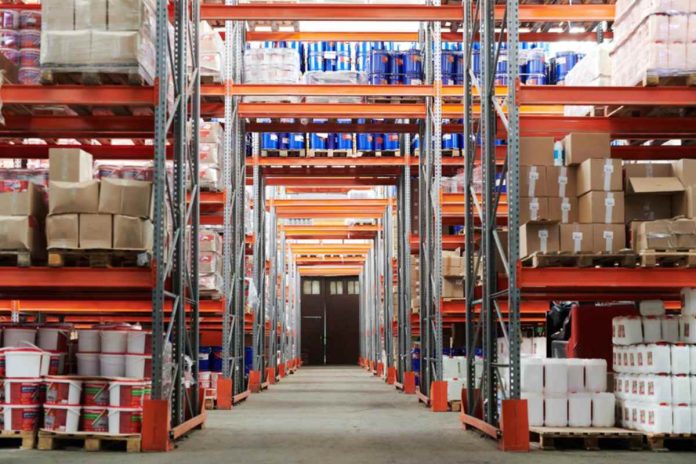Supply chain management is undergoing a significant transformation as artificial intelligence (AI) and the Internet of Things (IoT) become increasingly integrated into daily operations. In this blog post, we will explore how the combination of these cutting-edge technologies can optimize supply chain efficiency and improve decision-making processes in various industries.
Table of Contents
Enhanced Warehouse Efficiency
AI-driven automation and IoT-connected devices have profoundly impacted warehouse operations. Robotics and autonomous vehicles are now capable of handling tasks like picking, packing, and sorting. These advanced technologies not only improve the overall efficiency of warehouses but also minimize the risk of human error and workplace accidents. Furthermore, IoT-enabled devices such as wearable technology and smart sensors can monitor employee performance and overall warehouse conditions, allowing for improved management and resource allocation.
Seamless Data Collection and Analysis
The IoT consists of a vast network of interconnected devices that can collect and exchange data in real time. By incorporating IoT devices into supply chain management systems, businesses can access crucial data points that streamline operations and improve efficiency. One such capability involves monitoring asset lifecycle information management, allowing for the effective tracking of valuable assets throughout their useful life. As a result, decision-makers can make informed choices and better anticipate potential market changes or disruptions.
Greater Collaboration, Reporting, and Planning
Lastly, AI and IoT can streamline collaboration and communication among various stakeholders in the supply chain, such as suppliers, manufacturers, and retailers. IoT devices can provide end-to-end visibility across the entire supply chain, enabling all parties to track the progress of shipments and manage their inventory more effectively. AI-powered analytics can also improve reporting and planning capabilities, allowing teams to develop and execute strategic initiatives with precision and confidence.
Inventory Management with AI-Powered Insights
One of the most critical aspects of supply chain management is inventory control. AI can provide unprecedented insights into managing raw materials, work-in-progress items, and finished goods. Machine learning algorithms can analyze large amounts of historical data to forecast demand, identify trends, and even predict potential stockouts or overstock situations. By leveraging AI-powered insights, companies can efficiently manage their inventory, reduce carrying costs, and optimize product availability.
Optimized Transportation and Logistics
Efficient transportation and logistics systems are vital components of supply chain success. AI and IoT can work together to optimize various aspects of transportation planning, including route selection, fuel efficiency, and overall delivery performance. Real-time data collection, powered by IoT devices, can also aid in identifying and addressing potential issues related to shipping, such as traffic congestion or environmental factors. Combined with AI algorithms that predict and optimize delivery routes, businesses can benefit from cost savings and improved customer satisfaction.
Effective Risk Management
Supply chains are inherently complex, and unexpected disruptions are not uncommon. However, AI and IoT can contribute to effective risk management strategies. By gathering and analyzing large volumes of data, AI systems can identify patterns and trends that may indicate potential risks in the supply chain. Advanced predictive analytics can also provide early warnings of potential issues, such as equipment failure or supplier instability, allowing businesses to implement proactive measures to mitigate these risks.
Sustainable Supply Chain Practices
The integration of AI and IoT in supply chain management can also contribute to more sustainable practices. Real-time data and advanced analytics can help companies monitor and reduce their environmental footprint in various ways, such as optimizing energy consumption in warehouses or identifying the emission levels of transportation fleets. By adopting these technologies, businesses can work towards greener supply chain operations and meet their corporate social responsibility targets.
Future Trends in Supply Chain Management
As AI and IoT continue to evolve, their applications in supply chain management will further expand. One such future trend is the development of fully autonomous supply chain systems with minimal human intervention. By integrating advanced robotics, machine learning, and IoT sensors, these systems will be capable of autonomously adapting to market fluctuations and continuously optimizing operations. Additionally, the use of blockchain technology could further enhance transparency and security in the supply chain, promoting trust and collaboration among stakeholders.
Improved Customer Experience
AI and IoT technologies are not only beneficial for businesses but also for their customers. These technologies can improve the customer experience by providing them with more accurate and timely information about their orders. Customers can track their order status through IoT-enabled tracking systems and receive proactive notifications about potential delays or changes. Moreover, AI-driven chatbots can offer personalized customer support and help address any concerns quicker, elevating the overall customer experience.
Final Thoughts
The integration of AI and IoT possesses immense potential to revolutionize supply chain efficiency. From inventory management and warehouse operations to transportation planning and risk management, these advanced technologies are transforming the landscape of supply chain management. By embracing AI and IoT, businesses can reap the rewards of streamlined operations, improved decision-making processes, and long-term success in the ever-evolving global marketplace.


Review Supply Chain Efficiency: The Power of AI and IoT.